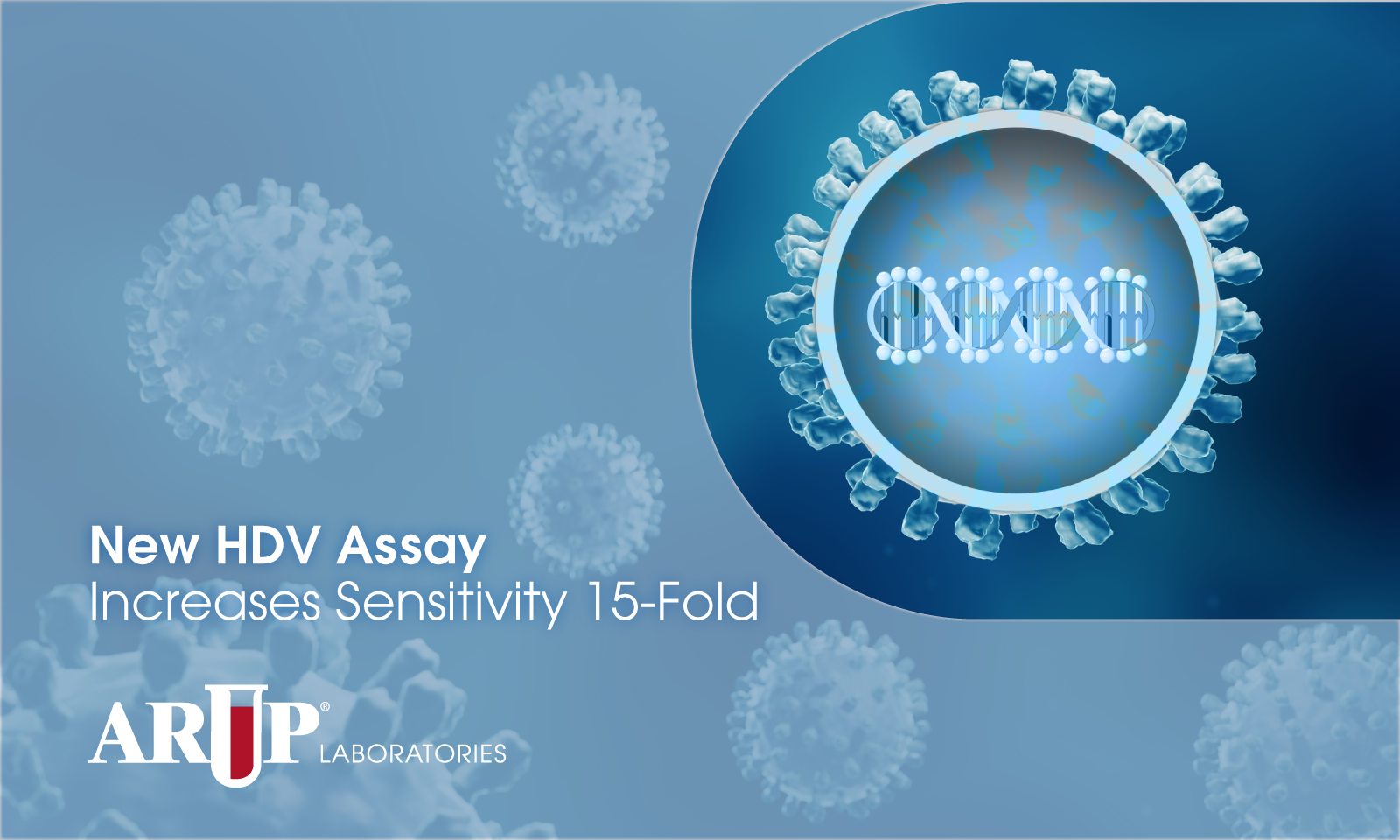
Hepatitis delta virus (HDV), which affects an estimated 48 to 72 million people worldwide, results in the most severe form of viral hepatitis-induced liver disease.
ARUP Laboratories has validated and launched a fully automated molecular assay for the detection of hepatitis delta virus (HDV) that is 15-fold more sensitive than the previous assay. The increased sensitivity will facilitate more effective detection of HDV infection, and the increased throughput will enable faster results.
Keith Tardif, PhD, a scientist in ARUP’s Research and Development department who specializes in infectious disease, played a key role in the assay’s validation.
“Our validation study found that the new assay has a sensitivity, or limit of detection (LOD), of 4 IU/mL, compared with 63 IU/mL of the previous assay,” Tardif said. “This assay is about 15 times more sensitive.”
Worldwide, HDV infection affects an estimated 48 to 72 million people, and nearly 5% of individuals who have chronic hepatitis B virus (HBV) infection may be infected with HDV, according to the National Library of Medicine. HDV only occurs as either a coinfection or superinfection with HBV, and superinfection with HDV results in the most severe form of viral hepatitis-induced liver disease.
“Hepatitis D is much harder to treat and much more serious,” said David Hillyard, MD, ARUP medical director of Molecular Infectious Diseases. “Those infected have an average lifespan, after onset of hepatitis D infection, of only 10 years.”
HDV testing is recommended for individuals who have hepatitis B, especially those who have more serious presentations, Hillyard said.
Rather than targeting just HDV genotype-1 (HDV-1), ARUP’s assay detects all genotypes of HDV. While HDV-1 is the most common genotype present in the United States, it’s possible that others will become more commonplace in the future, said Tardif.
In addition, the new assay is fully automated, which will decrease the amount of time required to return a result and will significantly reduce the workload for laboratory staff.
Tardif presented the test validation at the Association for Molecular Pathology (AMP) 2024 Annual Meeting and Expo, which was held November 19–23, 2024, in Vancouver, Canada.
This assay will join a complement of infectious disease molecular assays that ARUP has automated, providing greater sensitivity and additional testing capacity.
“I’m excited that we have created a test that has even greater sensitivity than the one that was originally established,” Hillyard said. “We’ll be able to handle increased volumes very easily and with a rapid turnaround time.”
Kellie Carrigan, kellie.carrigan@aruplab.com
















